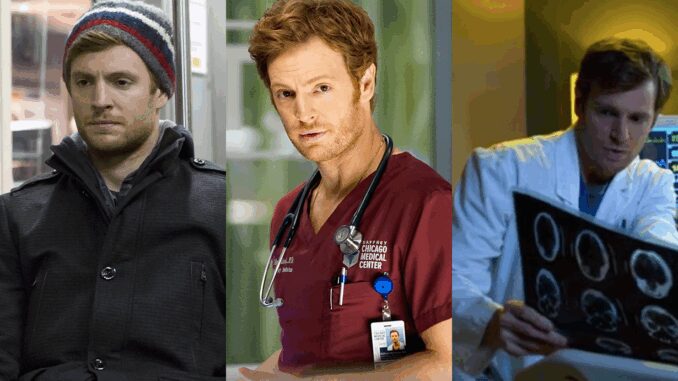
From Scalpel to Saddle: The Transformation of Nick Gehlfuss
Nick Gehlfuss is an actor who has seemingly embraced the duality of human existence, navigating the intense pressures of a trauma surgeon on television to the raw, simmering passions of a troubled cowboy on stage. His trajectory, from the sterile environment of Chicago Med to the dusty, whiskey-soaked world of Sam Shepard's Fool for Love, speaks volumes about the versatility of the actor and the transformative power of theatre. It’s a leap that underscores the common threads connecting seemingly disparate worlds: the fragility of the human body, the complexities of the human heart, and the universal search for connection in a world that often feels isolating.
For years, Gehlfuss was synonymous with Dr. Will Halstead, the dedicated and often conflicted emergency room physician on Chicago Med. He embodied the anxieties and moral dilemmas inherent in the medical profession. He was the man in the pristine scrubs, the one making life-or-death decisions under immense pressure, the calm amidst the chaos. He was trained to dissect, diagnose, and ultimately, to heal. This role demanded a precise performance, a controlled intensity that conveyed both competence and compassion. We saw him grapple with ethical quandaries, battle personal demons, and navigate the intricate politics of a bustling hospital. Halstead was a character defined by his rationality, a man striving to maintain order in a world constantly teetering on the edge of collapse.
Now, imagine that same actor, stripped of the white coat and medical jargon, thrust into the emotionally volatile landscape of a rundown motel on the edge of the Mojave Desert. In Fool for Love, Gehlfuss embodies Eddie, a cowboy haunted by a shared history and a forbidden desire with his half-sister, May. The controlled intensity he honed on Chicago Med is now channeled into a raw, primal energy. He’s no longer dissecting bodies, but dissecting the layers of his own tortured soul. Eddie is a creature of instinct, driven by a love that is both consuming and destructive. His rationality is replaced by an almost feral desperation, a yearning that spills out in bursts of anger, tenderness, and drunken confessions.
The contrast is stark, yet upon closer examination, a fascinating connection emerges. Both roles demand a profound understanding of the human condition. Dr. Halstead confronts the physical vulnerabilities of his patients, mending broken bones and battling diseases. Eddie, on the other hand, wrestles with the psychological and emotional scars that bind him to May. Both are dealing with wounds, albeit of different kinds. Halstead’s wounds are visible, quantifiable, and often treatable. Eddie’s wounds are invisible, deeply entrenched, and seemingly incurable.
Furthermore, both characters are ultimately striving for the same thing: connection. Halstead dedicates his life to connecting with his patients, offering them comfort and healing in their most vulnerable moments. Eddie, despite his destructive tendencies, desperately seeks to connect with May, to bridge the chasm of their past and reclaim the love that defines them. They both represent a fundamental human need to be seen, understood, and accepted.
The shift from television to theatre also highlights the distinct demands of each medium. Television often favors subtlety and realism, capturing nuanced performances that can be appreciated on a small screen. Theatre, however, demands a bolder, more expressive performance. Gehlfuss, in embracing the role of Eddie, has traded the quiet intensity of the hospital for the amplified emotions of the stage. He's allowing his voice to resonate through the theatre, his physicality to fill the space, and his emotions to spill out onto the audience. It's a testament to his range as an actor, his ability to adapt and thrive in different environments.
In conclusion, Nick Gehlfuss’s transition from Dr. Will Halstead to Eddie in Fool for Love is more than just a career change. It's a journey that explores the complexities of the human experience, connecting the world of medicine with the raw, untamed landscape of human desire. From the sterile confines of a hospital to the dusty plains of the American West, he embodies the shared vulnerabilities and yearnings that unite us all. By embracing these contrasting roles, Gehlfuss demonstrates the transformative power of acting and the enduring human need for connection, whether it's through a scalpel or a saddle. He reminds us that even in the most disparate environments, the human heart remains the same intricate, fragile, and ultimately, unyielding organ.
